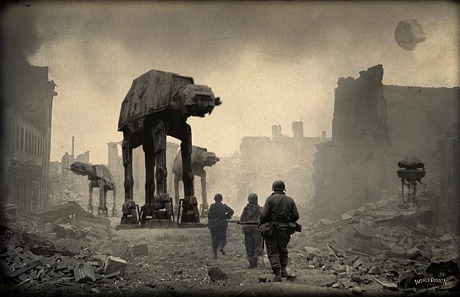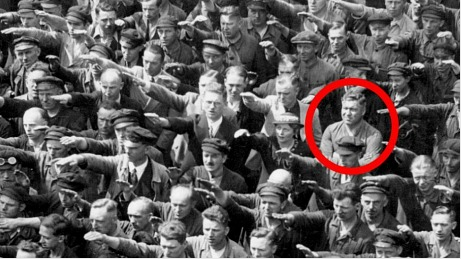Nocturnal Animals, Arrival Heading to Telluride? Maybe, Maybe Not.
When a film debuts at the Venice Film festival, it’s not unusual for it to also show up at the overlapping Telluride Film Festival, and also, more often than not, at the Toronto Film Festival. So Variety‘s Nick Vivarelli reporting that Tom Ford‘s Nocturnal Animals and Denis Villeneuve’s sci-fi pic Arrival “are virtually assured a Lido launch”…well, there you have it. Both are likely to screen also in Colorado. Or, failing that, at least in Toronto.
As usual, the calendar presents problems for Telluride. Challenges, I meant to say. The Venice Film Festival will run from Wednesday, 8.31 thru Saturday, 9.10, and the Telluride Film Festival starts on Friday, 9.2 and ends on Monday, 9.5. Venice therefore has a two-day jump. Venice’s world premieres of Nocturnal Animals and Arrival would have to happen early (no later than Thursday, 9.1 and Friday, 9.2) for their respective filmmakers to fly to Telluride straight after.
The Venice Film Festival will announced its full slate a week from today — on Thursday, 7.28.
Nocturnal Animals (Focus Features, 11.18), which costars Jake Gyllenhaal, Amy Adams, Laura Linney, Aaron Taylor-Johnson, Michael Shannon, Isla Fisher and Armie Hammer, has been a leading hottie in HE’s Oscar Balloon since early this year, mainly because of the quality of Ford’s A Single Man. Arrival (Paramount, 11.11) is a sci-fi drama costarring Amy Adams, Jeremy Renner, Forest Whitaker and Michael Stuhlbarg.
Perez Isn’t a Dynamic Pizazz Type But, Unlike Vilsak or Kaine, He’s At Least Tolerable
Labor Secretary Thomas Perez, 54, is said to be another of Hillary Clinton‘s favorites for a possible vice-presidential running mate. Perez is bright, Latino, personable, mild-mannered, a good guy, toothy, highly educated, bald. He clearly has more progressive pizazz than Hillary’s boring-white-guy favorites, Tim Kaine and Tom Vilsack. Perez is clearly more progressive than these two bowls of room-temperature soup. But he still doesn’t have “it”. No snap, virility, hormonal magnetism. Elizabeth Warren is the only high-energy, rock-and-roll, revivalist alternative, and Hillary (whom I’m learning to hate all over again) can’t decide what kind of boring she wants from her vice-presidential partner.

Amid Ruins of Germany


Bought the just-released O.J.: Made in America Bluray box last night. Only $35 for one of the most searing and memorable docs of the 21st Century, and a slamdunk for Best Documentary Feature if the Academy doesn’t disqualify it.
Race Against Time, Not To Mention The 405
I’ve just been told I can attend this afternoon’s 5 pm screening of Oliver Stone‘s Snowden in San Diego. That’s a logistical problem considering that (a) I’m still in West Hollywood and (b) it’s 2:10 pm as we speak. If I leave within 20 minutes I might be able make it. Maybe. This is nuts but I’m figuring “go for the gusto,” life is short, etc. Update: Forget it. A half-hour ago Google Maps informed it’ll take three hours and 27 minutes to drive to San Diego’s Horton Plaza. I just wasn’t fast enough. I’ll see it sometime next month. The embargo review date is 9.10.
Bergdahl Mystery Continues
Hollywood Elsewhere supports the just-announced lawsuit filed by Oscar-winning screenwriter Marl Boal against the U.S. government. It was filed in response to a threat by a military prosecutor in Bowe Bergdahl‘s upcoming court martial to subpoena Boal’s taped interviews with the Army deserter and former Taliban P.O.W. prisoner of war. Boal has been writing a screenplay about Bergdahl’s story, which may be directed down the road by longtime creative partner Kathryn Bigelow (The Hurt Locker, Zero Dark Thirty).
But I ask again with all sincerity — who the hell wants to see a movie about Bergdahl? What is it that I’m missing about this guy that supports an admiring or even an interesting portrait?
I’ve said before that I don’t want to see a film that portrays Bergdahl as a thouightful, perceptive anti-war humanist who found the courage not to fight in Afghanistan and to abandon his post only to be captured by the Taliban, etc. I’ve come to suspect that Bowe’s desertion was an act of a mentally unstable asshole, particularly since his desertion led to a search party that resulted in the deaths of fellow combatants. The general assessment is that Bergdahl is not made of uncommon valor. He appears to have been mentally unstable at the time of the desertion. He walked off his post without even carrying a weapon, for Chrissake.
What Will Dern Do in Chappaquiddick Film? Mutter A Word or Two? Twitch His Facial Muscles?
Yesterday Deadline‘s Anita Busch reported that Bruce Dern has been cast as the stroke-sidelined Joseph P. Kennedy in Chappaquiddick, a feature based on the Ted Kennedy-Mary Jo Kopechne tragedy, which happened on July 18, 1969 — two days before the Apollo 11 moon landing.


Chappaquiddick will begin shooting just after Labor Day. John Curran (Tracks, Stone) will direct from a BlackList script by Taylor Allen and Andrew Logan. Jason Clarke and Kate Mara are playing Ted Kennedy and Kopechne; Ed Helms (??) is portraying Kennedy confidante/advisor Joe Gargan. The producers are Apex Entertainment’s Mark Ciardi and Campbell McInnes.
Could someone please send me a PDF of the script?
Kennedy, the multi-millionaire founding father of the Kennedy clan and orchestrator of the mystique going back to the 1920s, suffered a stroke in 1961. It left him half-paralyzed, in a wheelchair and for the most part unable to speak. With the help of therapy he gradually recovered some mobility (he was seen walking with a cane in May of ’64) and limited speech functions. But by July of ’69 he was 81 and near the end. He died on 11.18.69, four months after the Chappaquiddick incident.
It therefore seems curious that Busch, presumably going on information provided by someone at Apex, is describing the elder Kennedy’s involvement in the tragedy as “key.”
Wake Up Moment
“I think Trump is going to win. I’m sorry. People are in denial of this, but [his] chance of winning is really, really good. It’s going to be the Brexit strategy. I was there during the Michigan primary, [and what Trump was saying] was music to people’s ears. More people in the Michigan primary voted Republican than Democratic….that’s disturbing” — Michael Moore during last night’s Bill Maher/Real Time special assessment of the Republican Convention’s activities. I posted this last night, but pay closer attention. Moore begins his riff around the 9:45 mark — make it the ten-minute mark.
Cruz Stood Up

Ted Cruz’s closing words at tonight’s Republican convention gathering: “Vote your conscience.” He was booed. Zero philosophical agreement with this creep, but I respect his decision to refuse to fold and endorse Donald Trump.
Respect The Man
I learned of the death of the admired, much beloved Garry Marshall early last evening during a long walk along the beach. I didn’t mean to convey a lack of respect by not posting a remembrance or at least an acknowledgment earlier today, but honestly? I never felt that strongly about his influence upon TV comedy (Happy Days, Mork & Mindy, Laverne and Shirley) or the films he directed. The truth is that Marshall, a sharp, tough-minded guy known for warmth, caring and solid professionalism, had a thing about feel-good material. He liked fantasies, loving friendships, up vibes, romances that end well, families, communities. No disrespect is intended when I say I genuinely liked two films of his — The Flamingo Kid and Runaway Bride. And that I honestly hated Pretty Woman. Marshall brought a lot of laughter and lifted the mood of millions who watched his stuff for 40 years, but he wasn’t my kind of guy. In my book the best thing Marshall ever did was that classic Las Vegas scene with Albert Brooks in Lost in America. I loved the way he referred to Santa Claus in this scene as “Santy” claus.
Son of Duran Duran
From Owen Gleiberman’s Variety review, filed during 2016 Cannes Film Festival: “Directed by the Venezuelan-born Jonathan Jakubowicz, who also wrote the script, Hands of Stone punches ahead in a conventional, aggressive, no-frills way.
“At this point, of course, the bar for boxing films has been set rather staggeringly high. Raging Bull turned the pugilistic melodrama into Shakespearean blood opera (it also had the greatest fight scenes that had ever been staged), and in recent years other movies have only built upon its achievement. The Fighter, with its dizzying use of hand-held camera, put the audience even more close-up into the ring, and Creed, with its fight scenes coming at you in astonishingly fluid unbroken takes, upped the existential intensity.
Walsh’s Peak Moment
The highlight of my publicity work during the mid to late ’80s (staff writer at Samuel Goldwyn, unit/in-house publicity for New Line Cinema, press kit writer for Cannon Films) was trying to sell a notion that the great M. Emmet Walsh deserved a Best Supporting Actor Oscar nomination for his performance as sleazy shamus Loren Visser in Joel and Ethan Coen‘s Blood Simple. Walsh paid me to create press releases, create trade ads and generate press attention that might push this along. We ultimately couldn’t persuade the Academy, but Walsh won the 1985 Spirit Award for Best Male Lead. And I got to join Walsh for a lunch with Joel and Ethan somewhere in downtown Manhattan.
Blood Simple Restoration Trailer from Janus Films on Vimeo.
A digitally restored 4K version of Blood Simple is being re-released theatrically in Los Angeles on 7.29. The Criterion Bluray will pop on 9.20.16.

